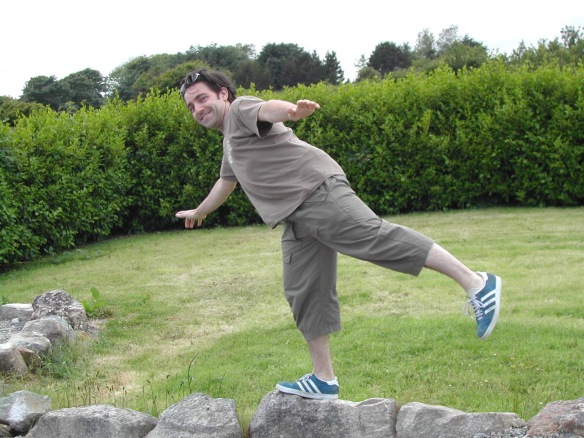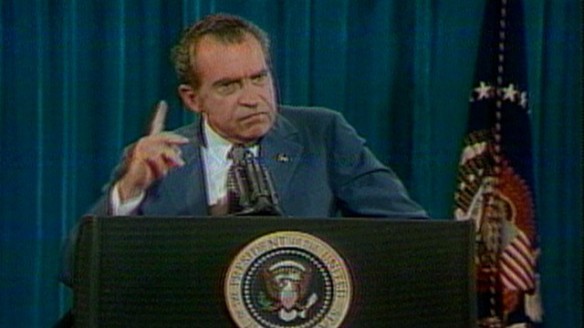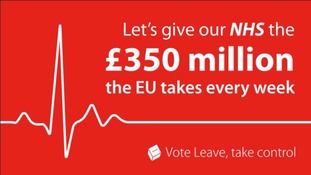
I wasn’t looking for it, but I found a letter I wrote to then-Prime Minister Tony Blair in April, 2001. I am retroactively impressed that there was a time when I thought writing to your MP (I also wrote to Keith Hill around the same time), or to your PM, was a worthwhile thing to do. You may say I was a dreamer, but I was not the only one. In 2001, Blair had been in power for almost his first term, and was about to go to the country, hubristically assuming that those of us who’d voted for him in 1997 would vote for him again in June. In the event, Labour lost five seats but still won with a comfortable majority; William Hague’s Tories gained one seat; and Charles Kennedy’s Liberal Democrats gained six. Not much changed.
I’ll ruin the ending for you: I didn’t vote for New Labour in the 2001 election, I voted Green, and in my threatening letter, you can read why (although I was still prevaricating in April, when I wrote it and sent it off in an envelope with something called a stamp on). Reading it, it may not surprise you to discover that I was a subscriber to The Ecologist magazine in 2001, which was edited by a man called Zac Goldsmith. It was a different time. Except, in many other ways, it wasn’t.
Rt Hon Tony Blair
House of Commons
Westminster
London SW1A 0AAApril 30, 2001
Dear Mr Blair,
I write to you as the election approaches because, as a lifelong Labour voter, I am prevaricating over whether to give you my vote in June.
I was actually a member of the Labour Party around the time of the 1992 general election, but allowed my membership to lapse because after Mr Kinnock’s defeat in a post-Thatcher climate I genuinely believed at the time that this country would never again return a Labour government. (If not then, when?) I was wrong, and I was as euphoric as everyone else[1] in 1997.
However I have become increasingly disillusioned in the ensuing first term. I follow politics closely in the newspapers and on TV[2], so I know all about the good things you’ve done: the minimum wage, partial reform of the Lords, an attempt to push a fox-hunting bill through[3], etc. But I have some big worries.
I voted for Ken Livingstone in the London mayoral elections because I was appalled at his treatment within the party and believed him to be the best candidate[4]. My loyalty to Labour was tested and I broke away. I am prepared to break away again unless you can put my mind at rest with regards your second term.
Will you continue to support GM foods in the face of public opinion? I am a committed environmentalist and during Labour’s first term I have seen the government in thrall to big agribusiness, especially American companies who care little for the delicate ecosystem of this tiny island. When will you stand up to Monsanto, Aventis and others?[5]
I have watched over two million cattle destroyed for economic reasons[6], when this country exports almost half the poultry it imports, and a much larger proportion when it comes to pork and lamb. Why must we export meat at all? I can’t be the only person appalled by the foot and mouth slaughter.
Do you intend to increase the subsidy set aside for those farmers who wish to go organic? It is currently an insultingly low figure that runs out almost immediately. (We see those that intensively farm receiving generous handouts, and look what they’ve done to the country.)
Will you really allow the London Underground to fall prey to privatisation (and part-privatisation is still privatisation) when Londoners are against it and the mess that is Railtrack stares us in the face every day? I know it wasn’t in the manifesto but can the national rail network not be renationalised[7]? You don’t have to be “old Labour” to see the benefits in that.
My main worry about voting Labour lies in the fact that you still seem to be in the back pocket of America. George Bush may wish to drag us all back to the bad old days of the “special relationship” but it takes two to tango, and if you refuse to endorse his Star Wars plans he won’t be able to turn Yorkshire into a nuclear target. I was disgusted when British planes accompanied US planes into Iraq[8] – it was like Margaret Thatcher and Tripoli all over again. Can you reassure me that Britain won’t be Bush’s poodle in the second Labour term?[9]
It is obvious that the votes of Middle England and Sun readers[10] will clinch a Labour victory, but don’t lose sight of “dead cert” voters like me and so many equally disenchanted people I know. All of a sudden, and after all these years of Labour loyalty, the Lib Dems, the Greens, even the Socialist Alliance are looking closer to what I believe in.
Can you really promise me that I won’t feel twice as disappointed in five years’ time?
Yours sincerely,
Andrew Collins
[1] Alright, I was as euphoric as 13,518,166 other Labour voters, in other words 43.2% of the British electorate. Looking back on it from the sunlit uplands of Corbyn-mania, the adulation heaped upon Tony Blair had already peaked in February 1996 when he was namechecked by Oasis onstage at the Brits: “There are only seven people in this room giving a little hope to young people in this country. Those seven are our band, our record company manager and Tony Blair.” It was downhill from there.
[2] Get me.
[3] New Labour promised a free vote on fox hunting in its 1997 manifesto. It took until February 2005 for the ban to come into force. Not a great advert for the Parliamentary process, really.
[4] Ken Livingstone was forced out of the Labour party in order to run as a candidate in the first London Mayoral elections, basically for the crime of being Old Labour. But nobody decent within New Labour could be convinced to run against him, and Ken won with 58% of the vote, pushing Labour into third place. I donated money to his campaign. (Imagine that.)
[5] The anti-GM campaign has no more gone away than GM itself, but it’s been superceded in the years since by fracking, and the further down the worry list it is, the better. I was fired up about it in 2001, as you can see.
[6] The BSE (Bovine spongiform encephalopathy or “Mad Cow Disease”) crisis in this country peaked in the 90s, with thousands of cattle being culled and burned on pyres. It was like hell on earth. I was of the firm belief that the introduction of cheaper bone-meal feed into a herbivorous animal’s diet was one of the main causes of the spread of the disease, along with intensive farming. I was all about farming practices in 2001, and always followed the money, as per the editorial line in The Ecologist.
[7] Old Labour thinking. Imagine this kind of madness taking root today! Preposterous!
[8] Prelude to war.
[9] Britain became Bush’s poodle in Blair’s second term, as is now a matter of record.
[10] The Sun switched support to the Labour party on 18 March 1997, six weeks before the Election: its front page headline read THE SUN BACKS BLAIR – again, hard to credit now.

This is approximately what I looked like in 2001, when I wrote this impassioned letter. The letter infers that I am rather unhappy, although in many ways I was happier then than I am now. (Of course! I was 16 years younger. And on holiday in Galway in the photograph!) I’m pleased I wrote the letter, although it had no effect. I received a reply, not really from Tony Blair, but from No. 10 Downing Street. I have it in an archive box somewhere, but it might not even be in my house, so I won’t kill myself trying to find it. It was pat bullshit in any case. (Despite this, I wrote Tony Blair another letter in 2003, when he was about to take us into George W. Bush’s war in the Middle East. We know how that turned out.) It seems quaint, reading the 2001 letter and about my very real, raw concerns about GM food and BSE, but in April 2001, I had no idea that two passengers jets would be flown into two high buildings in New York just six months later.

I even wrote a letter to Margaret Beckett MP, then Secretary of State for Environment, Food and Rural Affairs in October 2002, pleading with her not to allow GM food to be waived through for fear of not upsetting Monsanto and pals.
My letter to the Prime Minister seems quaint now. I was so much younger then, and idealistic. I thought I’d had that beaten out of me by the invasion and occupation of Iraq, and if anything, seven years of Tory government have almost killed it off. And yet, I feel a cautious degree of optimism that a tide may be turning. But I won’t be writing a letter to anyone about it.
















